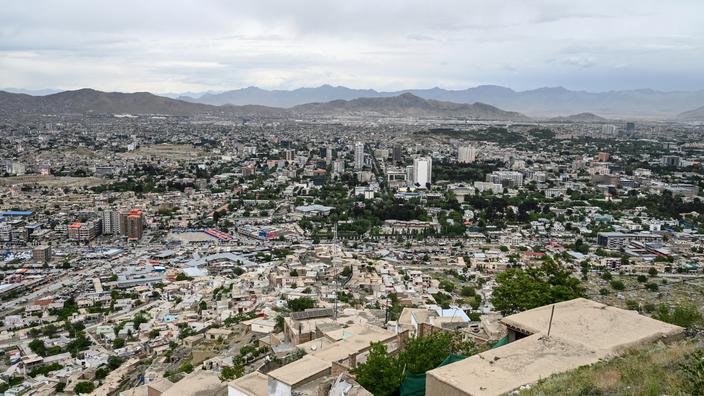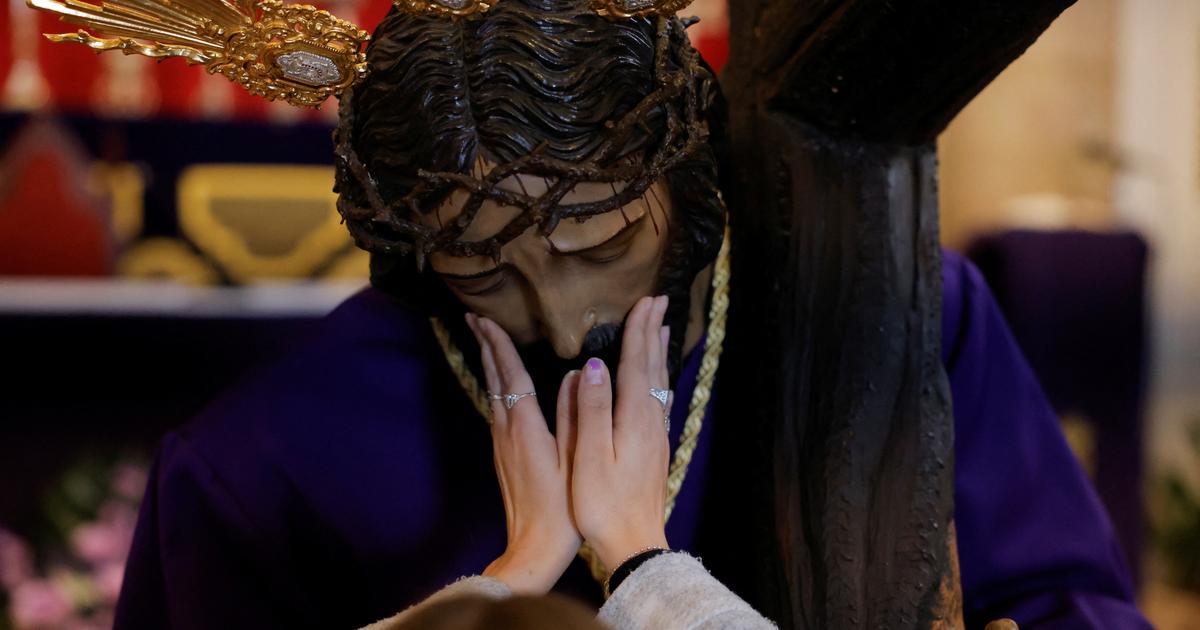Timothée Dufour is a lawyer at the Paris Bar
The situation of Afghan Christians, which was already very worrying while Westerners were present in the country, is becoming alarming with the return of the Taliban to power.
The risk of death they are facing calls for the international community to remain vigilant about the actions of the new Afghan authorities towards them.
"
Attacks against Christians are likely to increase in the region as the rapid advance of the Taliban emboldens extremists,
" said the organization defending persecuted Christians Release International in an August 16 article, which warns that "
anyone identified as a Christian could be killed
”.
To date, the spokesperson of the Taliban movement Zabihullah Mujahid has affirmed, without convincing the international community, that "
women will have rights, within the framework of the Sharia
", during this first press conference after their arrival in power. .
None of his words gave the slightest assurance when it came to religious minorities in Afghanistan, especially the Afghan Christian community.
To read also François Margolin: "Talking about moderate Taliban does not make sense"
The situation of Christians estimated at a few thousand people was already worrying in Afghanistan where Christianity, as reported by Eusebius of Caesarea, would have arrived with the apostles Thomas and Bartholomew in the second century AD, six centuries before birth. of Islam.
Even during the Western presence, blasphemy, apostasy and proselytizing of non-Muslims were already considered crimes.
Timothée Dufour
The Afghan constitution adopted in 2004, drafted with the help of an "
eminent French jurist
", as the French government noted with pride in a response to a parliamentary question published on July 8, 2004, was certainly reassuring. “
The holy Islamic religion is the religion of the Islamic Republic of Afghanistan. The followers of other religions are free, within the limits of the law, to exercise and celebrate their religious rites
”, specified the constitutional text. This was unfortunately not the case in reality: the blasphemy, apostasy and proselytism of non-Muslims were already considered crimes.
International organizations quickly pointed out the difficult situation of Afghan Christians, including the organization Open Doors, an NGO that works in more than 60 countries to support Christians deprived of religious freedom and suffering from persecution. She underlined how it was "
impossible to live openly as a Christian in Afghanistan
". The positions taken by Afghan elected officials had confirmed the hardening of their situation, as evidenced by an Afghan parliamentarian who, on September 9, 2013, demanded that Muslims who convert to Christianity be put to death, under Sharia law, Islamic law.
The European Court of Human Rights had noted the dramatic situation of the Christian community in a judgment of November 5, 2019. European judges opposed a deportation order decided by Switzerland on the grounds that people converted to Christianity, or even simply suspected of it,
"are exposed to a risk of persecution which can take a state form and lead to the death penalty
".
Read also The Taliban impose the Islamist order in Kabul
In this context, what changes can the Christian community hope for with the arrival of the Taliban to power, twenty years after being driven out of Kabul?
The Afghan Christians who will more than ever have to live their faith in the shadows do not expect a simple hardening of their living conditions, but a certain death, announced in advance.
The Taliban claim a rigorous application of Sharia in daily life, the object of which is to re-Islamize mores, justice and all the rights and duties, both individual and collective, of individuals.
Their fate is already known from the years when the Taliban were in power, between 1996 and 2001, a period during which the strictest Islamic law was promulgated, banning games, music, photographs, television.
Women were no longer allowed to work, girls 'schools were closed, thieves' hands were cut off, Christians executed in public, homosexuals crushed under a brick wall, adulterous women stoned to death.
Recent testimonies confirm the horror reserved for the Christian community.
Timothée Dufour
Recent testimonies confirm the horror reserved for the Christian community. "
Christians risk betrayal, even from members of their own families,
" said the Release International article referred to above. Among the testimonies that can be read on Twitter, the American author Mindy Belz relays the alarming words of a house church leader in Afghanistan: “
A person who works with house church networks in Afghanistan reports that its leaders received letters from the Taliban last night warning them that they know where they are and what they are doing
”.
The former masters of the country have therefore not changed their state of mind since the period 1996-2001, at least in their interpretation of Sharia law with regard to Christians.
Before the arrival of the Taliban, Afghanistan was already the second country where Christians are the most persecuted, according to the Global Persecution Index 2020, published by Doors Open.
Tomorrow, Afghanistan will most certainly be neck and neck with North Korea for first place in this ranking.
Read alsoFabrice Balanche: "Afghanistan is the archetype of the revenge of geography"
“
No, the Taliban have not changed their face.
They are even more ferocious.
One of their driving forces is the social divide that splits Afghan society in two,
”as Victoria Fontan, rector of the American University of Afghanistan and specializing in education, recalled in developing countries. crisis.
In the immediate future, we can only respond to the cry from the heart of Father Giovanni Scalese at the microphone of Vatican Radio, a Barnabite missionary of Italian origin: “
Pray, pray, pray for Afghanistan
”.




/cloudfront-eu-central-1.images.arcpublishing.com/prisa/VU7S6EWZZVMMDGHINQUMAFJHCE.jpg)



